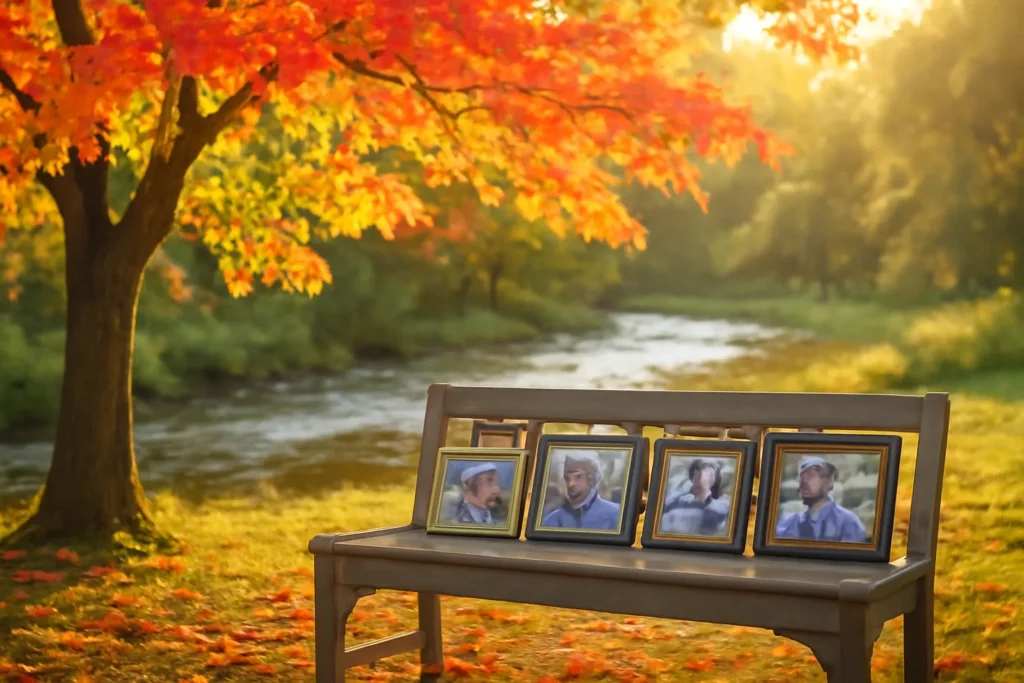Grief, Responsibility, and a Presidential Joke: A Family Navigates Loss
Few moments in life are as profound and disorienting as losing a parent. For Michelle Obama and her brother Craig Robinson, the passing of their mother, Marian Robinson, in May 2024 at the age of 86 became not just a private sorrow but a subject they openly explored on their podcast, “In My Opinion (IMO),” inviting millions into their process of grieving, adaptation, and sibling solidarity.
Every family is unique in how they handle the void left by a loved one, but when the family in question is one of America’s most admired, even the nature of their jokes makes headlines. Michelle recalled for listeners the moment her husband, former President Barack Obama, joked, “You’re next up,” after Marian’s passing—a quip that may seem detached or callous out of context, but which underscores how families sometimes use humor as a salve for grief’s sting. “I delegate that power to you,” Michelle retorted, passing the matriarchal baton back to Barack and her brother, Craig.
Behind their laughter, a more poignant reality: Marian Robinson’s death marked the end of an era. With both their parents gone—their father, Fraser C. Robinson III, passed away in 1991—Michelle and Craig faced the daunting transition of becoming the senior generation in their family. Michelle’s admission, “Even when I was taking care of mom, I still gotta listen to her,” (as cited on their podcast and in coverage by PEOPLE) reminded listeners that the parent-child dynamic persists well into adulthood, often enduring even as roles reverse.
Preparation, Humor, and Parental Legacies
Marian Robinson was not one to shy away from discussions of her mortality. Craig, in his signature dry wit, reflected that their mother had been “threatening to drop dead for 20 years,” a line that drew both laughter and comfort—proof that she had spent decades preparing them for the inevitability of her passing. In fact, Marian left precise instructions about her wishes, a gift of clarity for her children, underscoring an often-neglected truth: Open, honest conversations about death lighten the burden for survivors and help protect their dignity and intent.
Modern American families are, in many ways, ill-prepared for death—emotionally or practically. Studies from the Pew Research Center show that fewer than 27% of Americans have had frank end-of-life discussions with their parents, often resulting in confusion, guilt, and even legal trouble after a parent dies. Marian, by contrast, modeled a different approach, one that experts like palliative care physician Dr. Sunita Puri praise as “courageous and loving.” In her bestselling book “That Good Night,” Puri notes families who talk openly about death experience measurably better mental health outcomes down the road.
Michelle’s podcast conversation opened an important window onto this process. The siblings traced not just the logistics of loss—handling their mother’s wishes, learning to fill those “big shoes”—but also the psychological strain that comes with stepping into a new family leadership role, particularly as Black Americans navigating spaces where family, culture, and history intersect so profoundly.
Seeking Support in a New Chapter: Therapy, Vulnerability, and the Next Generation
The Obamas have always made an art of blending personal authenticity with public responsibility, but it takes special courage to admit vulnerability. On The Jay Shetty Podcast, Michelle recently revealed she’s sought therapy—not just for grief, but to help adjust to her new “empty nester” identity as her daughters Malia and Sasha build independent lives. The journey through grief, she insisted, is not just about moving on but moving forward with intention.
Countless Americans know too well the dual weight of loss and transition. As baby boomers age, more families are facing the reality of becoming the oldest generation, responsible not just for new legacies, but for holding together those that came before. Harvard psychologist Dr. Robert Waldinger, who leads one of the longest-running studies on adult development, affirms that those who find meaning after loss—often through therapy or open dialogue—are statistically happier and more fulfilled. Michelle’s willingness to open up about her use of therapy (still stigmatized in many communities) is a public endorsement of mental wellness worth celebrating.
Beyond that, the podcast episode also debunked tabloid rumors of impending divorce between Michelle and Barack—a narrative eagerly absorbed by a media environment more eager for scandal than substance. Michelle’s evident trust and humor in recounting Barack’s joke stands as a counterweight to these rumors. In truth, their family’s handling of loss—its messiness and its moments of laughter—feels not just relatable, but instructive for a nation so often encouraged to hide pain or “keep calm and carry on” at the expense of genuine healing.
“Even when I was taking care of mom, I still gotta listen to her. I can sort of boss her around but in the end, she’s my mother.”
Policy may not deliver therapy to every American, but progressive values demand that we create a culture where seeking help is applauded, where discussions of mortality are normalized, and where family—however you define it—remains at the core of resilience. Imagine if society took mental health (and the responsibilities of aging generations) as seriously as families like the Obamas do. How might our discourse shift?
A closer look reveals the real power in the Obama family narrative—a willingness to stay honest with one another and the world in moments of hardship. Their public-facing grief opens space for others to admit what is true, messy, and deeply human about loss. For all the headlines, that is a legacy worthy of emulation—far more substantial than any palace intrigue or fleeting rumor.

